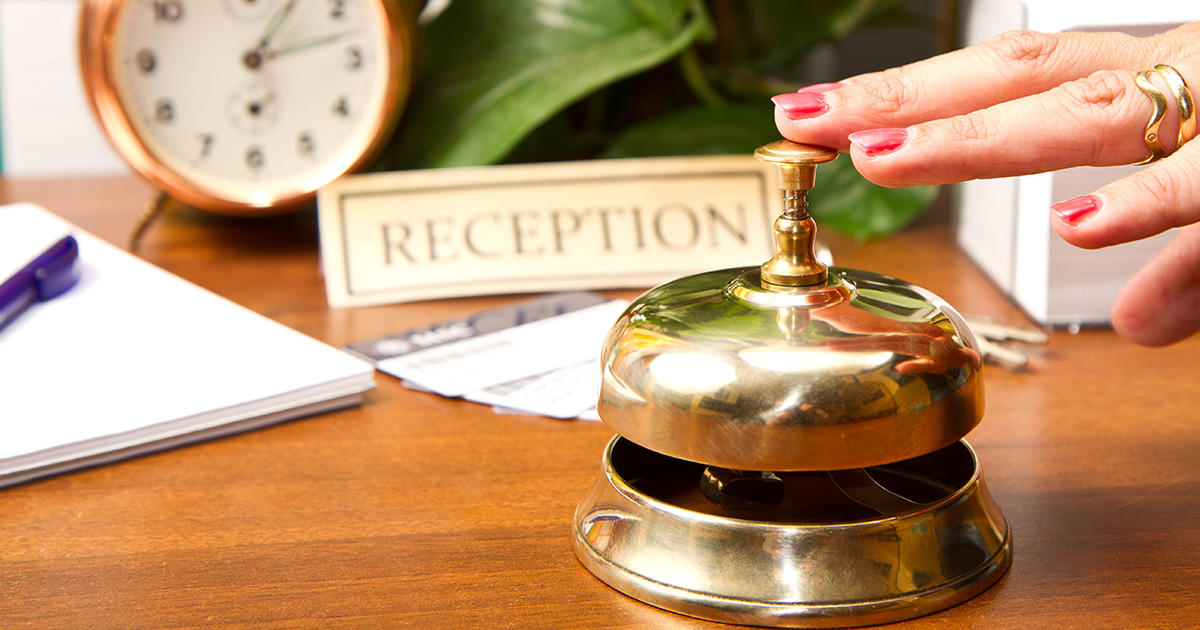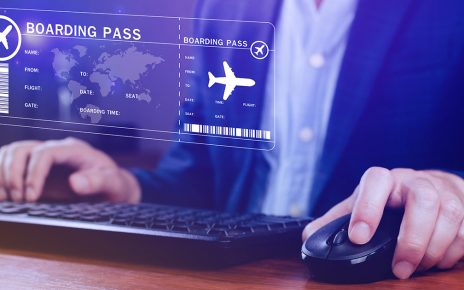Introduction to Hotel Reservations
Welcome to the digital age, where booking a hotel room is just a few clicks away. Gone are the days of flipping through phone books or relying solely on travel agents to secure your accommodation. The evolution of hotel reservations has transformed the way we plan our travels, making it easier and more convenient for travelers around the world.
In this blog post, we’re going to take you on a journey through time as we explore the history of hotel reservations and how technological advancements have revolutionized this industry. From handwritten ledgers to online booking platforms, get ready to discover how these changes have impacted both travelers and hotels alike. So grab your virtual boarding pass and let’s dive in!
The History of Hotel Reservations
The History of Hotel Reservations
Hotels have been providing accommodations to travelers for centuries, but the concept of hotel reservations as we know it today is a relatively recent development. In the early days, travelers would simply show up at an inn or hotel and hope that there was space available. This often led to frustration and inconvenience, especially during peak travel seasons.
The first recorded instance of a formal hotel reservation system dates back to the late 18th century in Bath, England. The city’s booming tourism industry prompted hotels to implement a system where guests could reserve rooms in advance. This marked the beginning of a new era in hospitality.
However, it wasn’t until the mid-20th century that technology began playing a significant role in hotel reservations. With the advent of telephone communication, travelers could call ahead and book their accommodations over the phone. This made it easier and more convenient for both hotels and guests.
But perhaps one of the biggest game-changers came with the rise of computers and internet technology in the late 20th century. Online booking platforms emerged, giving travelers unprecedented access to information about different hotels, room availability, rates, and reviews from other guests.
Today, with just a few clicks or taps on their smartphones or computers, travelers can browse through countless options and make instant reservations from anywhere in the world. The evolution of hotel reservations has undoubtedly transformed travel experiences for millions around on globe.
As technology continues to evolve at an ever-increasing pace, we can only speculate about what lies ahead for hotel reservations. Virtual reality tours may become commonplace before making a reservation allowing potential guests to experience every aspect virtually before deciding on their stay.
In conclusion is clear that advances in technology have greatly impacted how individuals plan their trips by revolutionizing how they search for accommodations while empowering them with greater choice than ever before.
Technological Advancements and their Impact on Hotel Reservations
Technological advancements have revolutionized the way hotel reservations are made, making the process faster and more convenient for travelers. With the advent of computer systems in hotels, traditional paper-based reservation systems slowly gave way to electronic databases that stored guest information and availability.
The introduction of online booking platforms further transformed the landscape of hotel reservations. Travelers can now easily search for available rooms, compare prices, and make instant bookings from anywhere in the world with just a few clicks. This has eliminated the need for phone calls or visiting travel agencies to secure accommodations.
Mobile applications have also played a significant role in streamlining hotel reservations. With smartphones becoming an essential part of our lives, travelers can now book their stays on-the-go using dedicated apps provided by hotels or third-party booking platforms.
Artificial intelligence (AI) has also made its mark on hotel reservations. AI-powered chatbots provide personalized assistance to travelers, answering queries about room availability, amenities, and even suggesting local attractions based on individual preferences.
In addition to these technological advancements benefitting travelers by offering convenience and accessibility, they have also empowered them with more control over their choices. Reviews and ratings from other guests help make informed decisions when selecting accommodation options.
However, it is important to note that despite these benefits, there are some drawbacks as well. The abundance of online options sometimes leads to information overload for travelers who may struggle to navigate through numerous websites or apps before making a decision. Additionally, reliance on technology means there is always a possibility of technical glitches or system failures that could disrupt the reservation process.
As technology continues to advance at a rapid pace, we can expect further innovations in hotel reservations. Virtual reality might enable prospective guests to take virtual tours of hotel rooms before booking while blockchain technology could enhance security by ensuring transparency in transactions.
In conclusion,
the impact of technological advancements on hotel reservations cannot be understated.
Travelers today enjoy unprecedented ease and convenience when it comes
to finding and booking accommodations. However, it is crucial for both travelers
and hoteliers
The Rise of Online Booking Platforms
The Rise of Online Booking Platforms
Gone are the days when travelers had to rely on travel agents or make phone calls to book their hotel reservations. With the rise of online booking platforms, such as Expedia, Booking.com, and Airbnb, travelers now have the convenience of browsing through thousands of options from the comfort of their own homes.
These online booking platforms have revolutionized the way we plan our trips. They provide us with a wealth of information at our fingertips, including detailed descriptions and photos of hotels, customer reviews and ratings, and even interactive maps that show us exactly where each hotel is located.
One of the biggest advantages of using online booking platforms is that they allow us to compare prices across different hotels easily. We can filter our search results based on our preferences – whether it’s budget-friendly accommodations or luxurious resorts – and find the best deal that suits our needs.
Moreover, these platforms often offer exclusive discounts and deals for users who book directly through their websites. This means that travelers can save money while enjoying convenient access to a wide range of properties worldwide.
However, there are also some drawbacks associated with online booking platforms. Sometimes what you see isn’t always what you get. Photos may be deceiving or outdated, leading to disappointment upon arrival at your chosen accommodation.
Additionally, relying solely on online reviews can be risky since they may not always reflect an accurate representation of a hotel’s quality or service. It’s important for travelers to do thorough research before making a final decision.
Despite these drawbacks, it’s clear that online booking platforms have greatly simplified the reservation process for travelers worldwide. The ease-of-use and vast selection available make them an invaluable tool in planning any trip.
As technology continues to advance rapidly in this digital age we live in today.
Online booking platforms will likely continue evolving too.
We can expect more personalized recommendations based on individual preferences,
and seamless integration between different aspects of travel planning such as flights, accommodation, and activities.
In conclusion,
the rise of online booking platforms has
Benefits and Drawbacks for Travelers
Benefits and Drawbacks for Travelers
When it comes to hotel reservations, there are both benefits and drawbacks for travelers. Let’s start with the benefits.
One of the major advantages of making hotel reservations is the convenience it offers. Gone are the days when you had to call multiple hotels or travel agencies to find available rooms. With just a few clicks, travelers can now easily browse through numerous options and compare prices, amenities, and reviews from other guests.
Another benefit is the flexibility that online booking platforms provide. Travelers have more control over their plans as they can make reservations at any time of day or night, without having to rely on limited business hours. This allows for greater spontaneity in travel arrangements.
Additionally, online bookings often come with special deals and discounts that can save travelers money. Many websites offer exclusive rates or package deals that may not be available if booking directly through a hotel.
However, there are also some drawbacks to consider. One potential downside is the overwhelming amount of information available online. With so many options to choose from, it can sometimes be difficult for travelers to narrow down their choices and make a decision.
Furthermore, relying solely on online reviews may not always paint an accurate picture of a hotel’s quality. Reviews can be subjective and biased, so it’s important for travelers to take them with a grain of salt and do additional research before finalizing their reservation.
While technology has made booking easier in many ways, it has also created new challenges such as cybersecurity threats and privacy concerns. Travelers need to be cautious when providing personal information during the reservation process and ensure they’re using secure platforms.
In conclusion (avoid), there are definite benefits but also drawbacks associated with hotel reservations in today’s digital age (conclude). It is important for travelers (summarize)to weigh these factors carefully before making their decisions (avoid). By considering all aspects(avoid repetitive phrases), travellers will be able to make well-informed choices that suit their needs and preferences.
Future Predictions for Hotel Reservations
Future Predictions for Hotel Reservations
As technology continues to advance at an unprecedented pace, it is certain that the future of hotel reservations holds exciting possibilities. One key trend that is expected to shape the industry in the coming years is the rise of artificial intelligence (AI) and automation.
With AI-powered chatbots becoming increasingly sophisticated, travelers can look forward to a more seamless booking experience. These intelligent virtual assistants will be able to provide personalized recommendations based on individual preferences and past travel history.
Moreover, predictive analytics will play a crucial role in optimizing hotel inventory management. By analyzing data patterns and trends, hotels can anticipate demand fluctuations and adjust their pricing strategies accordingly. This not only benefits travelers by ensuring competitive rates but also enables hotels to maximize revenue.
Another innovation on the horizon is blockchain technology. By leveraging its decentralized nature, hotels could potentially offer secure and transparent booking systems while eliminating intermediaries. This would result in reduced costs for both travelers and hoteliers alike.
Furthermore, with the advent of augmented reality (AR) and virtual reality (VR), guests may soon have the ability to virtually tour their chosen accommodations before making a reservation. This immersive experience would allow them to visualize room layouts, amenities, and even explore nearby attractions without leaving their homes.
In addition to technological advancements, sustainability will continue gaining prominence in the hospitality industry. Hotels are likely to prioritize eco-friendly practices such as energy-efficient infrastructure design and waste reduction initiatives. Travelers can expect more options for environmentally-conscious accommodations that align with their values.
While these predictions paint an exciting picture for the future of hotel reservations, it’s important to note that human interaction remains crucial in delivering exceptional customer service experiences. The balance between automation and personalized service should be carefully maintained so as not to alienate those who value human touchpoints during their travels.
The evolution of hotel reservations has come a long way since its humble beginnings centuries ago. With each new technological breakthrough comes enhanced convenience for travelers. As the industry continues to innovate, we can look forward to a future where
Conclusion
Conclusion
The evolution of hotel reservations has undoubtedly revolutionized the way we travel. From handwritten ledgers to sophisticated online booking platforms, technology has played a pivotal role in streamlining the reservation process and providing convenience for travelers.
Over the years, we have witnessed tremendous advancements in hotel reservation systems. These technological innovations have made it easier than ever before to search for accommodation options, compare prices, and make bookings from the comfort of our own homes or even on-the-go through mobile apps.
Online booking platforms have emerged as dominant players in the industry, offering a wide range of benefits for travelers. The ability to browse multiple hotels at once, read user reviews and ratings, view photos and amenities, and make instant reservations has transformed how we plan our trips. With just a few clicks or taps on our devices, we can secure our preferred accommodations with ease.
However, while there are many advantages to online hotel reservations, there are also some drawbacks that travelers should be aware of. Booking through third-party websites can sometimes result in hidden fees or inaccurate information about room availability. Additionally, relying solely on online platforms may limit personal interactions with hotel staff and miss out on unique perks or upgrades that can come from direct communication.
Looking ahead into the future of hotel reservations, it is likely that technology will continue to shape this industry. Artificial intelligence (AI) algorithms could provide personalized recommendations based on individual preferences and past booking history. Virtual reality (VR) tours might allow users to virtually explore hotels before making their final decision.
As technology evolves further alongside changing traveler needs and preferences emerge so too will new ways for consumers to book accommodations seamlessly without sacrificing quality or peace-of-mind during their travels.
In conclusion (without using those words), while advancements in technology have greatly improved convenience when it comes to reserving hotels,
we must remember that human interaction remains an important aspect of hospitality.
Finding a balance between embracing innovative solutions while maintaining personalized customer service will be crucial for the future success of hotel reservations.
So, next time you’re planning




